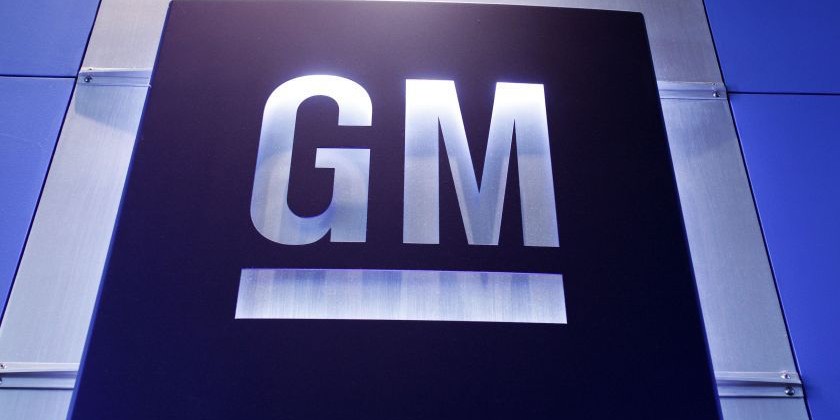In what is being described as it latest move in its effort to outflank Silicon Valley in the race to develop shareable, autonomous vehicles, US auto giant General Motors Co is buying Cruise Automation, a San Francisco self-driving vehicle startup.
Cruise founder Kyle Vogt told media that it had managed to raise $20 million in venture capital to date since it was founded and launched in 2013. The company has 40 employees. The value of GM’s acquisition was not disclosed by GM and Cruise.
GM paid $1 billion, said the technology website Re/Code citing sources as saying. A GM spokesman declined to comment on that figure.
“We will be committing considerable resources to recruit and grow the capability of the team,” Reuters quoted GM President Dan Ammann as saying.
Ammann said that the company intended to to accelerate plans to launch autonomous vehicles, potentially as part of ride sharing fleets, “as soon as possible,” using the technology available with Cruise.
He did not offer a specific time frame.
GM has been trying to stake a claim in the fast-evolving market for mobility services and its acquisition of Cruise is the latest in a rapid series of moves by the automaker.
GM formed a new car-sharing brand operation called Maven following its announcement in January of potentially investing around $500 million in ride-hailing company Lyft Inc. The company has also established a separate unit for autonomous vehicle development.
Plans to develop self-driving vehicles, including autonomous electric vehicles have been outlined by GM executives. These plans include vehicles that could be deployed in ride-sharing operations in various markets.
Some traditional auto suppliers as well as other automakers are forging into ride sharing and autonomous driving.
Gathering in intellectual property and programming talent, Germany’s Continental AG and Delphi Automotive Plc, among others, are prowling for technology companies to buy.
Even though global vehicle demand is strong, there is a fear among industry executives that the century-old business of building and selling cars that people drive themselves is at risk and the flurry of investments by traditional auto industry players reflects that fear.
Cars of the future would be largely digital, electrical devices that individuals summon to get from one place to another, and then used by another passenger and this would be made possible by artificial intelligence and sophisticated machine vision.
There are debates about existence of traditional car makers and questions about their survival in a shared vehicle world and their potential displacement by rivals more adept at digital technology strategy, such as Alphabet Inc's Google or ride-sharing services Uber Technologies Inc.
GM is using profits from selling large sport utility vehicles and pickup trucks to buy hedges against that risk.
(Source:www.reuters.com)
(Source:www.reuters.com)
Cruise founder Kyle Vogt told media that it had managed to raise $20 million in venture capital to date since it was founded and launched in 2013. The company has 40 employees. The value of GM’s acquisition was not disclosed by GM and Cruise.
GM paid $1 billion, said the technology website Re/Code citing sources as saying. A GM spokesman declined to comment on that figure.
“We will be committing considerable resources to recruit and grow the capability of the team,” Reuters quoted GM President Dan Ammann as saying.
Ammann said that the company intended to to accelerate plans to launch autonomous vehicles, potentially as part of ride sharing fleets, “as soon as possible,” using the technology available with Cruise.
He did not offer a specific time frame.
GM has been trying to stake a claim in the fast-evolving market for mobility services and its acquisition of Cruise is the latest in a rapid series of moves by the automaker.
GM formed a new car-sharing brand operation called Maven following its announcement in January of potentially investing around $500 million in ride-hailing company Lyft Inc. The company has also established a separate unit for autonomous vehicle development.
Plans to develop self-driving vehicles, including autonomous electric vehicles have been outlined by GM executives. These plans include vehicles that could be deployed in ride-sharing operations in various markets.
Some traditional auto suppliers as well as other automakers are forging into ride sharing and autonomous driving.
Gathering in intellectual property and programming talent, Germany’s Continental AG and Delphi Automotive Plc, among others, are prowling for technology companies to buy.
Even though global vehicle demand is strong, there is a fear among industry executives that the century-old business of building and selling cars that people drive themselves is at risk and the flurry of investments by traditional auto industry players reflects that fear.
Cars of the future would be largely digital, electrical devices that individuals summon to get from one place to another, and then used by another passenger and this would be made possible by artificial intelligence and sophisticated machine vision.
There are debates about existence of traditional car makers and questions about their survival in a shared vehicle world and their potential displacement by rivals more adept at digital technology strategy, such as Alphabet Inc's Google or ride-sharing services Uber Technologies Inc.
GM is using profits from selling large sport utility vehicles and pickup trucks to buy hedges against that risk.
(Source:www.reuters.com)
(Source:www.reuters.com)





